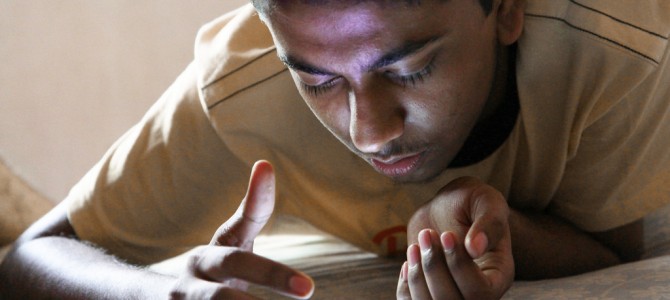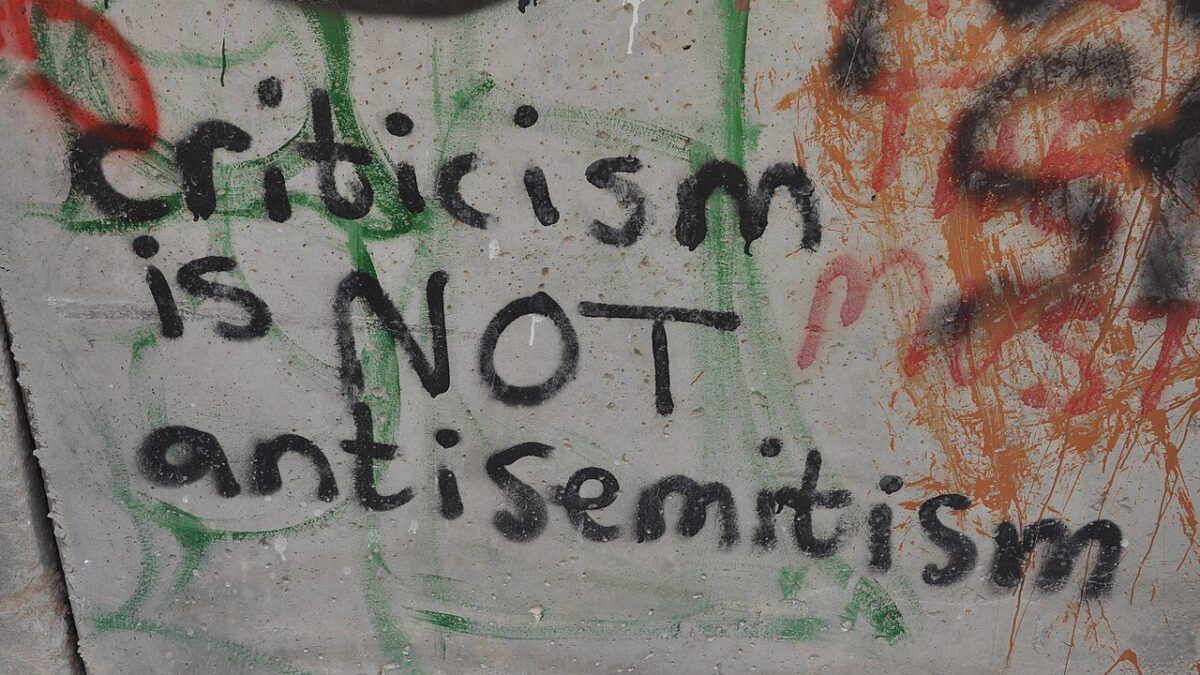
On a recent trip to Alaska, I spent several early mornings hunting for moose with my brother in more than 100 acres of dense woodland behind our parents’ house. We hadn’t explored some parts of those woods before and wanted to chart what we’d covered one day to the next, keeping track of meadows, rock outcroppings and other landmarks.
So I downloaded an app called Trails, which uses GPS to track your movements across a satellite image of your location. It also lets you drop waypoints, make notes, and pull up a dizzying array of statistics like altitude, speed, pace, and so on.
Using a smartphone app in those woods was jarring. The technology didn’t belong there. Hunting moose is, more than anything, a premodern exercise in silence and deliberateness. You have to move slowly, placing every step with care lest you snap a twig or stumble and make too much noise. My brother and I never spoke above a whisper. Our late uncle, a master hunter, wouldn’t speak at all while hunting moose; he’d only use hand signals. Moose are essentially giant deer, and if you’re not quiet they’ll hear you and move along without you ever knowing they were there.
Stalking through the woods before dawn, moving in slow motion, rifle in hand, all senses taut, scanning the trees and clearings for signs of our quarry—that’s just about the most primal thing a modern man can do. So it disturbed me to pull out my iPhone every so often to check my location on the Trails app against the previous day’s data. Moving my eyes from the stillness of silent forest at dawn to the screen of an iPhone was jarring. It didn’t seem right.
After a few mornings of hunting those woods, I realized it wasn’t necessary. I knew where I was. Walking deliberately through the woods in silence, I’d memorized the landscape. I didn’t need the app.
Digital Media Is Now Ubiquitous
An article in the Wall Street Journal on Wednesday profiled a company that sells NoPhone, “a plastic rectangle that looks like a smartphone but does absolutely nothing.” They sell for $10 each, and more than 10,000 have been sold in the past two years. The latest version of NoPhone goes one step further: it’s just plastic packaging that contains nothing.
The NoPhone is among the latest countercultural reactions to the ubiquity of smartphones, apps, and constant online connectedness. It was unveiled at a tech conference in Canada earlier this month that had no cell phone service and where no devices of any kind were allowed. Last year, conference organizers worried no one would show up. They said some people told them they couldn’t be away from their cell phones for an entire weekend.
By now, most of us know the feeling. Checking email or social media is something we do constantly—not just at work or evenings at home, but in the grocery store, at the gas station, even while we’re driving or waiting at a traffic light. What academics call “interstitial” spaces are now being filled by Snapchat, Twitter, and Instagram.
That’s partly because Americans treat their cellphones like “body appendages,” according to a Pew survey last year. Of the 92 percent of adults who own a cellphone (67 percent of whom have a smartphone), Pew reported that 90 percent said they “frequently” carry it with them while only 3 percent said they “rarely” do. And 76 percent said they rarely or never turn their phones off.
The trend is growing. According to one consumer study, smartphone internet usage increased 78 percent between 2013 and 2015, accounting for 2 of every 3 minutes spent online last year, with most of that time spent on mobile apps. Another study found that among teenagers who use smart phones and tablets, 45 percent spend more than four hours each weekday using the mobile Internet, and more than a quarter log on for more than five hours a day on average.
But it’s not just smartphones and tablets. The entire universe of online media is gradually dominating the lives of millennials. One disturbing example of this is the intersection of low workforce participation among men in their twenties without a college degree and the amount of time they spend playing video games. Economist Erik Hurst found this demographic group increased their leisure time by about four hours per week between 2000 and 2015, mostly because they were working less. Three of these four hours were used to play video games.
Without Solitude, We Can’t Suffer — Or Find Peace
There are mountains of data like this. They all point to a growing lack of quietude in modern America, driven by the incessant distraction of digital media, which in turn is driving us into further isolation from one another. But it’s also isolating us from ourselves. In the current issue of New York Magazine, Andrew Sullivan writes about his 15-year binge on online news, gossip, and social media—and why he decided to quit.
Sullivan was of course one of the first political bloggers. He came of age as a journalist in the late 1980s and ’90s, and launched his pioneering blog, The Dish, in 2000. He was, as he says, “a very early adopter of what we might now call living-in-the-web.” For a decade and a half, his life was an unending “immersion in the stream of internet consciousness and news.” But as the years went on, something began to change. Everyone else, it seemed, began living-in-the-web, too:
Facebook soon gave everyone the equivalent of their own blog and their own audience. More and more people got a smartphone — connecting them instantly to a deluge of febrile content, forcing them to cull and absorb and assimilate the online torrent as relentlessly as I had once. Twitter emerged as a form of instant blogging of microthoughts. Users were as addicted to the feedback as I had long been — and even more prolific. Then the apps descended, like the rain, to inundate what was left of our free time. It was ubiquitous now, this virtual living, this never-stopping, this always-updating.
There is grave danger in this way of living, Sullivan argues—and he’s right. The substitution of reality for virtual reality might put us in touch with more people more often, but the depth of our communication with them is so shallow it hardly matters. Meanwhile, as our ability to converse and empathize with others erodes, we become alienated from our own thoughts and emotions.
Sullivan refers to a famous YouTube clip of the comedian Louis C.K. on the Conan O’Brian Show, explaining why he won’t let his children have smartphones. “You need to build an ability to just be yourself and not be doing something. That’s what the phones are taking away,” he says.
Of course, there’s a reason to fear being alone and not doing something. In the clip, Louis C.K. recounts a moment in his car when a Bruce Springsteen song comes on the radio and he feels a twinge of sadness. He reaches for his phone to text a friend, but puts it down. “I said to myself, ‘Just be sad.’ Stand in the way of it and let it hit you like a truck.” He pulls his car over and weeps. After a few minutes, a feeling of relief sweeps over him. “I was grateful to feel sad, and then I met it with true profound happiness.”
Sullivan tells a similar story, a moment in the woods while at a meditation retreat center. Alone and unplugged long enough to reconnect with his own emotions and memory, he breaks down weeping under a tree, thinking about his mother’s struggle with bipolar disorder and how it affected his childhood. Over the next day, “the feelings began to ebb, my meditation improved, the sadness shifted into a kind of calm and rest.”
The Subtle Danger Of Social Media
In both cases, solitude was only possible by shunning digital media and the false sense of connectedness it gives us. Solitude instead gave these men space and time to feel the full weight of their sadness, and pass through it into a kind of peace. Both Sullivan and Louis C.K. are grasping at a truth about suffering and solitude that the Catholic writer and monk Thomas Merton plumbed yet deeper in his memoir, “The Seven Storey Mountain.” It chronicles his journey from an aspiring left-wing intellectual in the 1930s to his entry into a Trappist monastery in 1942. Merton wrote:
The truth that many people never understand, until it is too late, is that the more you try to avoid suffering, the more you suffer, because smaller and more insignificant things begin to torture you, in proportion to your fear of being hurt. The one who does most to avoid suffering is, in the end, the one who suffers most: and his suffering comes to him from things so little and so trivial that one can say that it is no longer objective at all. It is his own existence, his own being, that is at once the subject and the source of his pain, and his very existence and consciousness is his greatest torture.
In our era of digital distractions, it’s easy to see the truth Merton is pointing toward. At the time he wrote it, he couldn’t have known that two and three generations later people would be so inundated with small ways to avoid solitude and suffering that they would nearly forget such things exist. The peril is even greater for millennials, who have scarcely known a time before social media and virtual reality. Even those of us who grew up before smartphones and Facebook struggle today to get by without them—but at least we can recall a time when they weren’t around. Young people now beset by social media have the greater burden to overcome.
The stakes are high. If we don’t learn how to be alone, we won’t know how to be together—or how to cope with the suffering and pain that life will inevitably send our way. To the extent that we obsessively use social media and smartphones to avoid solitude and the suffering it can bring (as well as peace and even pleasure), then indeed, “smaller and more insignificant things” begin to torture us.
We’ll come to believe that no amount of social media or video games or online shopping is too much, because we need all we can get to keep pain and suffering at bay. In that case, we’d better keep our smartphones with us, “like appendages,” and stay logged in—even when we’re alone in the woods.









